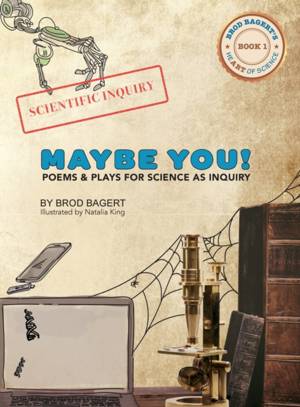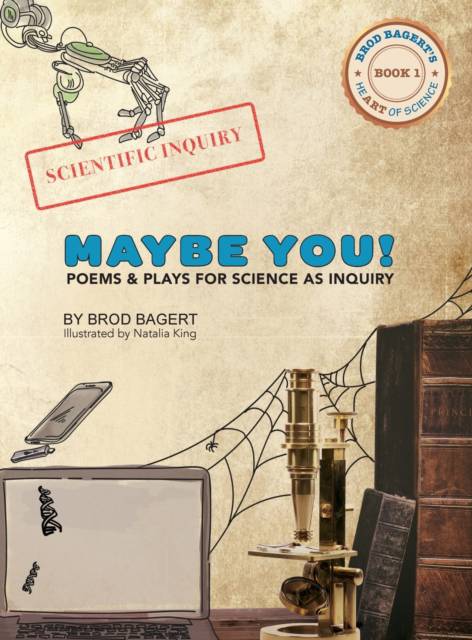
- Retrait gratuit dans votre magasin Club
- 7.000.000 titres dans notre catalogue
- Payer en toute sécurité
- Toujours un magasin près de chez vous
- Retrait gratuit dans votre magasin Club
- 7.000.0000 titres dans notre catalogue
- Payer en toute sécurité
- Toujours un magasin près de chez vous
Description
Entertaining, Instructional, and Comprehensive
My brain is like a great white shark
always hunting knowledge in the dark.
So shout it--CURIOSITY!
Yes that is how you measure me.
from "My Curious Brain"
Young minds will shift into overdrive as they encounter the history, philosophy, and principles of scientific inquiry--all irresistibly packed in this poignant yet comical collection of dramatic poems, monologues, and short plays.
Calling on the time-honored principle that children remember "90% of what they do in dramatic presentation," Maybe You! is the first book in the long-awaited Brod Bagert's heART of Science series, providing parents, teachers, and young learners with a comprehensive compendium of dramatic content literature, both entertaining and instructional.
In "On the Field with the Pros," Tamara experiences the thrill of conducting her own research to debunk the myth of the Egyptian crocodile bird. In "New Brain Magic," Caroline and Javier explore the elements of critical thinking as they collaborate to concoct a magic potion "to turn normal brains into brilliant scientific wonders." And in "Real Monsters," a child discovers the revelatory power of scientific instruments when observing dust mites and maggots, through a microscope, and concludes that real monsters do indeed exist, "but they're very, very small."
The essence of curiosity, the joy of critical thinking, the power of the scientific method, the tools of science, the relationship between technology and scientific discovery, publication and peer review, the progression of scientific knowledge with each generation "standing on the shoulders of Giants," it's all here.
The collection concludes with "Knowledge in Motion," which describes the progression from Newton's revolutionary Laws of Motion to Einstein's even more revolutionary Theory of Special Relativity and drives to an empowering conclusion:
So you see how our knowledge keeps inching along.
It seems perfect today, but tomorrow it's wrong.
And who will be next to propose something new?
First Newton, then Einstein, and next...Maybe you?
from "Knowledge in Motion"
Spécifications
Parties prenantes
- Auteur(s) :
- Editeur:
Contenu
- Nombre de pages :
- 48
- Langue:
- Anglais
- Collection :
- Tome:
- n° 1
Caractéristiques
- EAN:
- 9781732151598
- Date de parution :
- 13-11-19
- Format:
- Livre relié
- Format numérique:
- Genaaid
- Dimensions :
- 216 mm x 279 mm
- Poids :
- 449 g

Les avis
Nous publions uniquement les avis qui respectent les conditions requises. Consultez nos conditions pour les avis.






